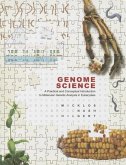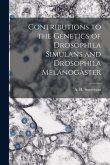Discover the forefront of artificial intelligence innovation in biological sciences with this comprehensive exploration of end-to-end differentiable architectures applied to protein-protein interaction (PPI) networks. This authoritative volume offers an in-depth examination of how advanced AI models can revolutionize our understanding of complex biological systems. Spanning 33 meticulously crafted chapters, the book delves into a rich array of topics, including the utilization of graph neural networks and transformers for sophisticated PPI modeling. It illuminates the power of attention mechanisms and end-to-end protein embedding techniques in capturing the nuances of protein interactions. Readers will gain valuable insights into integrating multi-modal data, enhancing models with deep generative approaches, and employing hypergraph neural networks to represent complex biological interactions. Addressing both theoretical and practical aspects, the text explores reinforcement learning applications, capsule networks for hierarchical feature capture, and meta-learning strategies that enable models to adapt swiftly to new data. It doesn't shy away from the challenges of the field, tackling issues such as data imbalance, scalability, and uncertainty estimation with Bayesian neural networks. The integration of structural biology, energy-based models, and contrastive learning further enriches the discourse, providing a holistic view of the current state and future direction of AI in PPI research. Ideal for researchers, data scientists, and professionals in bioinformatics and computational biology, this book serves as an indispensable resource for those aiming to advance their expertise. It provides practical guidance on optimization techniques, loss function engineering, and active learning strategies, all while emphasizing the importance of explainable AI for transparency in scientific findings. With its blend of innovative concepts and detailed methodologies, the book paves the way for groundbreaking discoveries and applications in the analysis of protein-protein interaction networks.
Bitte wählen Sie Ihr Anliegen aus.
Rechnungen
Retourenschein anfordern
Bestellstatus
Storno





